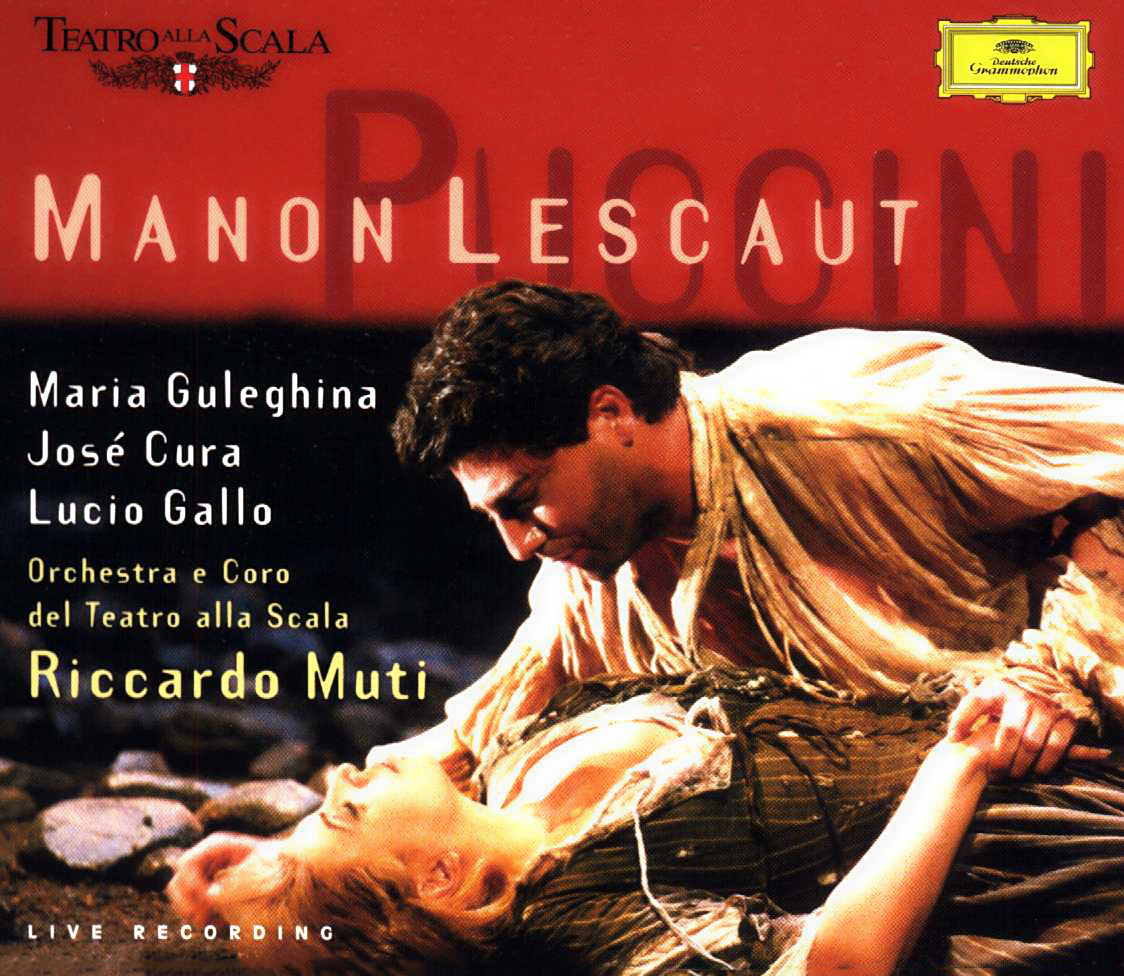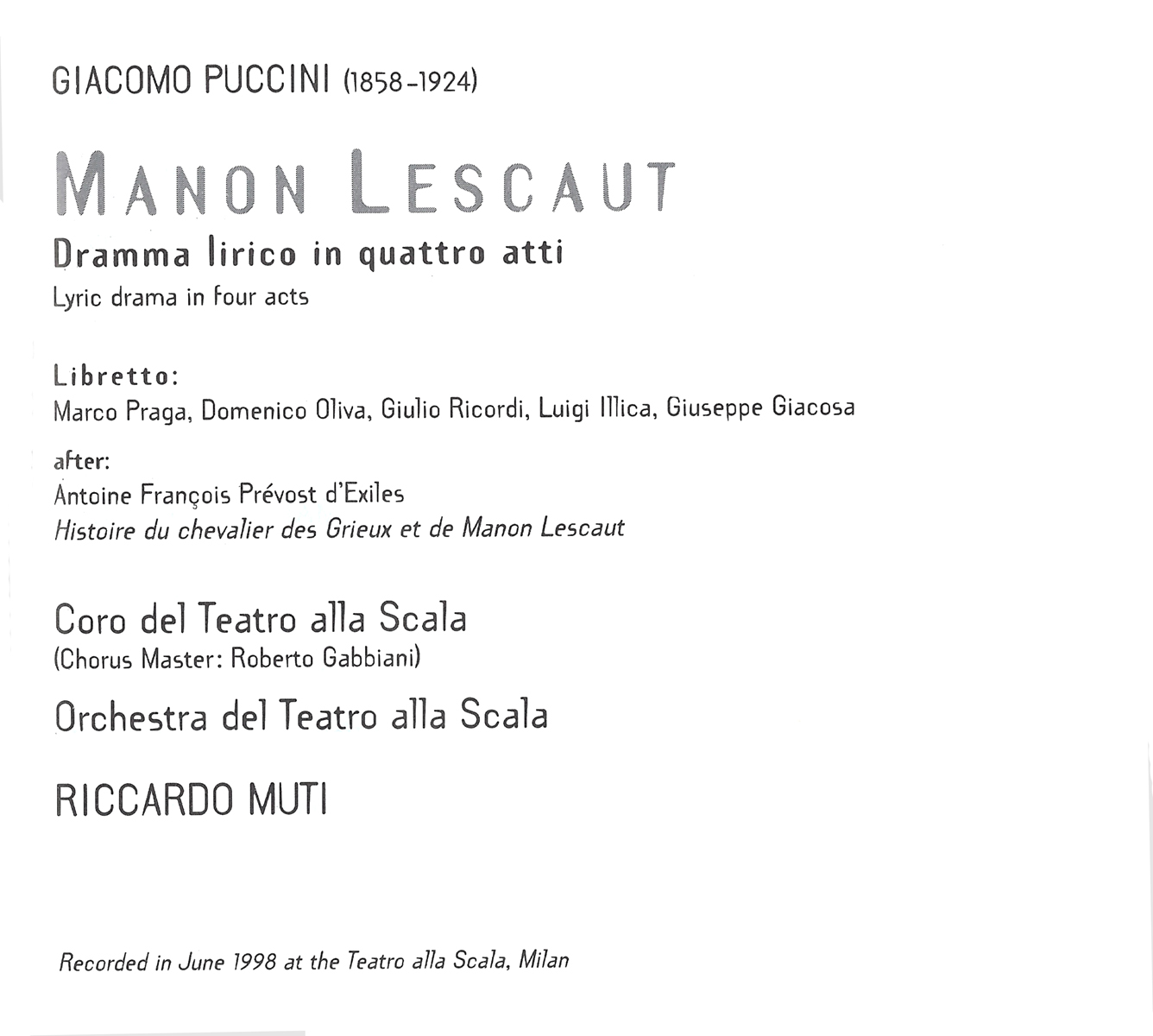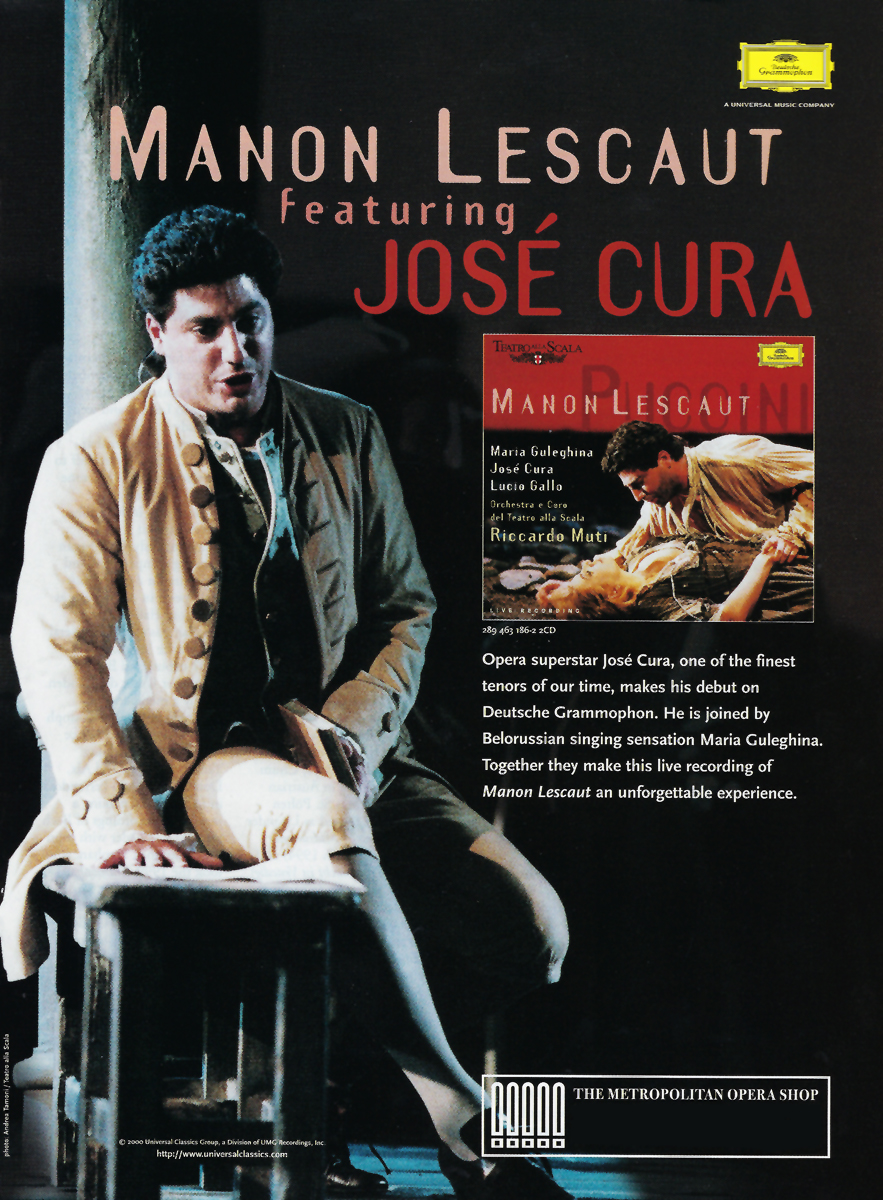Muti directs an uncommonly vital and blazingly theatrical performance, eliciting first-class playing from his orchestra and outstanding singing from his principals and chorus. Rarely has this score received such a wide range of dynamic nuance and subtlety, yet Muti points the climaxes of the middle acts with tremendous power and verismo thrust. In his best recording to date, José Cura makes a virile, ardent Count des Grieux, singing with strength and delicacy. In the deportation scene of Act III, the Argentinean tenor characterizes with alarming dramatic intensity, but his refined vocalism and heroic tone carry him through.
As Manon, Maria Guleghina's rich Slavic timbre is less naturally suited to Puccini, and, after some initial indistinct enunciation, she delivers an affecting In quelle trine morbide. In the tragic finale, the Ukrainian soprano rises to the challenge of Sola, perduta, abbandonata superbly. Cura and Guleghina are both at their finest here, vocalizing with the kind of ripe, unapologetically theatrical singing one too rarely hears today.













.jpg)



















